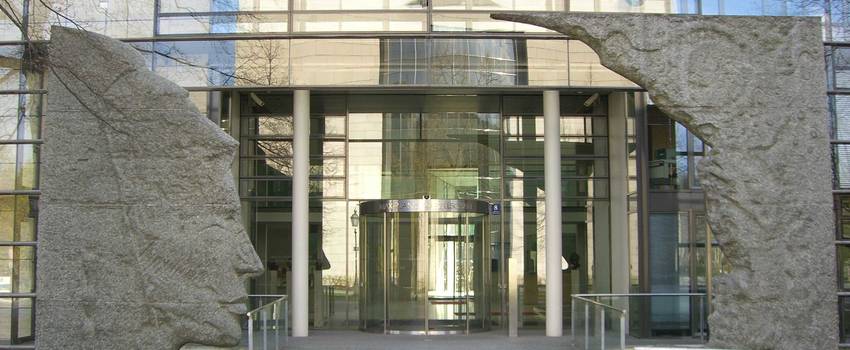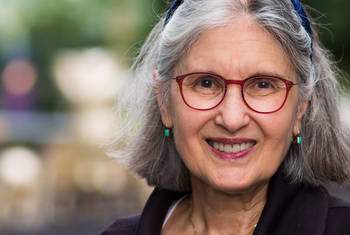Jürgen Renn How Can We Historically Describe the Evolution of Knowledge and How Can We Account for It?
Jürgen Renn is Director of the Max Planck Institute for the History of Science and Honorary Professor at Humboldt University and Free University, Berlin. He is a member of the German National Academy of Sciences Leopoldina and affiliated with various international institutions, including Boston University. With a background in physics and mathematics, Renn is a leading researcher in the changing systems of scientific thought and physical knowledge. In his current research, Renn is particularly interested in looking at how different disciplines of knowledge production have contributed to the evolution of knowledge. Further, he seeks to dissect how this might differ under the influence of new media and across cultures. Beyond academic research, Renn has been involved in the Digital Humanities and Open Access Movement, as well as in drafting of the Berlin Declaration on Open Access to Knowledge in the Sciences and Humanities.
Area of Research
History of Knowledge and Science, the Anthropocene
since 2006
Honorary Professor for History of Science
Free University of Berlin (Freie Universität Berlin)
since 1998
Adjunct Professor for Philosophy and Physics
Boston University
since 1995
Honorary Professor for History of Science
Humboldt University of Berlin (Humboldt-Universität zu Berlin)
since 1994
1993-1994
Visiting Professor of Philosophy
ETH Zurich (ETH Zürich)
And University of Tel Aviv
1991-1996
Co-Director
Arbeitsstelle Albert Einstein at the Max Planck Institute for Human Development and Educational Research
1990-1992
Associate
Harvard University
Department of Physics
1989-1994
Assistant, then Associate Professor for Philosophy and Physics
Boston University
1987
PhD in Mathematical Physics
Technical University of Berlin (Technische Universität Berlin)
1983
Diploma in Physics
Free University of Berlin (Freie Universität Berlin)
- AAAS (American Association for the Advancement of Science)
- Acadèmie Internationale d’Histoire des Sciences, Paris (2014)
- Deutsche Akademie der Naturforscher Leopoldina (2005)
- Deutsche Physikalische Gesellschaft
- Research and Publishing Network
- ScienceOPEN
Prizes
- Max Planck Communitas Award (2014)
- ESHS Neuenschwander Prize (2014)
- Francis Bacon Award (2014)
- Premio Internazionale Marco & Alberto Ippolito (2014)
- Premio Anassilaos International (2011)
- PIRELLI InterNetional Award (1998)
Fellowships
- Visiting Scholar at the Forschungsschwerpunkt Wissenschaftsgeschichte und Wissenschaftstheorie der Gesellschaft für wissenschaftliche Neuvorhaben of the Max Planck Society in Berlin (1992)
- Wissenschaftskolleg zu Berlin (1988-1989)
- Italian Consiglio Nazionale delle Ricerche, Rome (1988)
- Fritz Thyssen Foundation, Berlin (1988)
 © Maximilian Dörrbecker
© Maximilian Dörrbecker
Max Planck Society
"The Max Planck Society is Germany's most successful research organization. Since its establishment in 1948, no fewer than 18 Nobel laureates have emerged from the ranks of its scientists, putting it on a par with the best and most prestigious research institutions worldwide. The more than 15,000 publications each year in internationally renowned scientific journals are proof of the outstanding research work conducted at Max Planck Institutes – and many of those articles are among the most-cited publications in the relevant field." (Source)
Institute
Max Planck Institute for the History of Science
"Founded in 1994, the MPIWG in Berlin is one of the more than eighty research institutes administered by the Max Planck Society. It is dedicated to the study of the history of science and aims to understand scientific thinking and practice as historical phenomena. Researchers pursue an historical epistemology in their studies of how new categories of thought, proof, and experience have emerged." (Source)
Map
The history of science traditionally focuses on specific time periods or on scientists that made important discoveries. The research presented in this video by JÜRGEN RENN broadens the perspective and looks at the history of knowledge more generally. With the goal to investigate how knowledge evolves historically the researchers looked at it across time periods and disciplinary boundaries. By tracing three dimensions of knowledge, the cognitive, the material and the social dimension, they detect how each of them influences knowledge evolution. Among others they explain that cognitive structures are being formed by concrete practices and how the carriers of knowledge, be it books or digital media, influence the organization of knowledge and its further evolution.
LT Video Publication DOI: https://doi.org/10.21036/LTPUB10204
The Globalization of Knowledge in History
- Jürgen Renn
- Published in 2012









